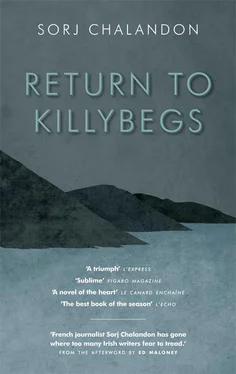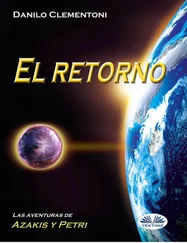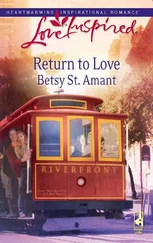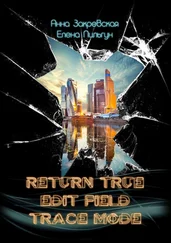— Our revenge will be the lives of our children.
I had said that at Danny’s graveside. And it was done, Abbie.
When Mike pulled the curtain across, over his daughter’s eyes, I closed mine. I would keep that moment. That carefreeness, that innocence, and that love for me.

The first car had parked on the pavement, lights cut, between the O’Doyles’ front door and the street, the same way the British armoured vehicles used to do when concealing an arrest. I recognized Rory, a guy from the Short Strand area. He was behind the wheel. He had left the engine running. Beside him was Cormac Malone, a member of Sinn Féin’s Ard Chomhairle and a friend from way back when. His presence reassured me. I was in the hands of the party, I hadn’t been handed over to the army. Neither of them turned around. They were looking straight ahead, as concentrated as if they were driving on a motorway in the pouring rain. Peter Bradley was sitting in the back: Pete ‘the Killer’, who had spent more time in English prison cells than in his living room.
Pete didn’t just fight the English, he hated them. For him, there was no difference between a soldier and a child. They were killing our kids? We should kill theirs. Blow for blow, grief for grief. He confused Loyalists and Protestants. Like the racists on the other side, for whom every Catholic is a potential IRA man, he’d say that no Presbyterian was innocent. Bradley was terrified by the idea of peace. War was his life. After the ceasefire, some of the other Bradleys took the dissident route, joining the handful who refused to lay down arms. He was tempted. He hadn’t done so. Even disbanded, the IRA was still his army and we were his OCs. So he just made a lot of noise in the pubs, invoking Bobby Sands and swearing that ‘those guys’ would have continued to fight.
On Friday, 17 May 1974, Peter Bradley and his fiancée Niamh were visiting Dublin. For the first time in their lives, they had crossed the border. He was twenty-one, she was nineteen. Their wedding was set for 14 September. They had visited the GPO on O’Connell Street, where Connolly and his men had proclaimed the Provisional Government of the Irish Republic at Easter 1916. They had kissed on the Ha’penny Bridge, the footbridge of lovers that straddles the Liffey. They had wandered up Grafton Street and dreamed they were rich and students. Pete had bought a pair of shoes and Niamh a white blouse. At half past five they were walking down Parnell Street when the first bomb exploded. The second blew up on Talbot Street. The third destroyed South Leinster Street. Niamh was blown to pieces, projected head first against a wall by the violence of the blast. When the firemen and the Garda Síochána arrived, Peter was comforting the dead body by trying to stick its arm back on.
One hour later, a bomb exploded in Monaghan, a town on the border. Twenty-seven dead in Dublin, seven in Monaghan. Amongst them were a pregnant woman, an Italian woman and a Jewish French woman, the daughter of camp survivors.
The Loyalist militia from the Ulster Volunteer Force had decided to bring the war to the Republic of Ireland. They had done so in their own way, without warning. They wanted to kill papists, and the British security forces were accused of having assisted them.
That day, sitting amongst blood and scraps of flesh, Peter Bradley became Pete ‘the Killer’. It would no longer be for Ireland’s liberty that he’d fight, but to avenge Niamh, his own youth and his mangled life.

Beside him in the car was Eugene Finnegan, the Bear Cub. He opened the door and stepped aside so that I could sit between them on the back seat. The warmth was stifling, but the smell of Cormac Malone’s aftershave welcomed me. It was an eau de toilette that I’d brought him back from Paris. I was clinging to the tiny details. To miniscule hopes. Why wear the aftershave I’d given him as a gift? What did he want to tell me? That I needn’t fear anything? That he was my friend? I searched out his eyes in the windscreen reflection. He had the absent gaze of someone you pass in the street.
A second car parked across the way. They exchanged a brief flash of headlights. Mike ran over and sat up front. The Bear Cub got in beside me. He jostled me, pressing me against Pete. The Killer placed a hand on my knee. He took hold of it with an animal grip. I was his prisoner and he was letting me know.
We drove through the heart of our enclaves, heading along the familiar streets. I knew them as well as you know a man. Each house had its history, every door its secret. They were giving me a sign. I was saying goodbye to them.

One evening in 1972, at this crossroads, Cormac Malone should have died. Since then, he’d close his eyes whenever he went through it. On this night, too, he turned away. The Loyalists had arrived from Shankill. They had fired at him through their open car window, driving at full speed, not concerning themselves with the old man talking to him. Cormac saw them coming. He threw himself on the old man, pushed him to the ground with his walking stick and his vegetables and covered him with his body, but it was too late. Three bullets in the back, two thousand people at the funeral. Cormac hated the survivor he had become.
In October 1974, under this streetlight on the Springfield Road, Cathy and Jim’s son Denis had been killed by a plastic bullet, shot through the embrasure of an armoured vehicle. He was going to get some milk from the shop. He died at the age of thirteen, on the pavement, a £5 note clutched in his hand.
At the end of February 1942, in that little garden, against that red Beechmount door, an IRA man had handed me my first gun.

We crossed the border at six in the morning on Saturday, 16 December 2006. Pete’s hand was tight on my knee. Cormac had slept, the Bear Cub, too — snoring lightly, his forehead against the pane. We were in the Republic of Ireland. I was returning home. The party had reserved the lounge of a Dublin hotel and booked a press conference. Sinn Féin wanted to demonstrate that the British were continuing their dirty war. After having tried to crush our resistance, they had infiltrated it and corrupted some of its members.
Everyone had put on a tie before leaving the vehicles. I was the only one with an open shirt, looking like someone who had been in police custody overnight. The room was full. I arrived on foot, freely, surrounded by the men. I was overcome with dizziness. The cameras, the microphones, all those journalists talking at the same time. What did they know about me? About our struggle? What had they come here for? To hear what? Find out what? Report what? For them, the war had been so easy to describe. The good British, the bad terrorists. Everything had already been said. They didn’t believe in the ceasefire. ‘Manoeuvre’, ‘tactics’: they drew their headlines from the big bag of doubts. When they had to admit it was really happening, they confused political volition and military surrender, then turned away from us. Peace? Uninteresting. Hope is harder to sell than fear. And suddenly, without any warning, here they had a traitor to sink their teeth into, a spy, a thrill. An old and lingering odour of war.
Cormac was behind me, accompanied by another Ard Chomhairle member. They were grave and sullen. When the microphones were held out, I confessed. Nothing more. That way the British would know that I had given myself up.
— My name is Tyrone Meehan. I am a British agent. I was recruited twenty years ago, at a vulnerable point in my life. I was paid for handing over information…
Читать дальше













